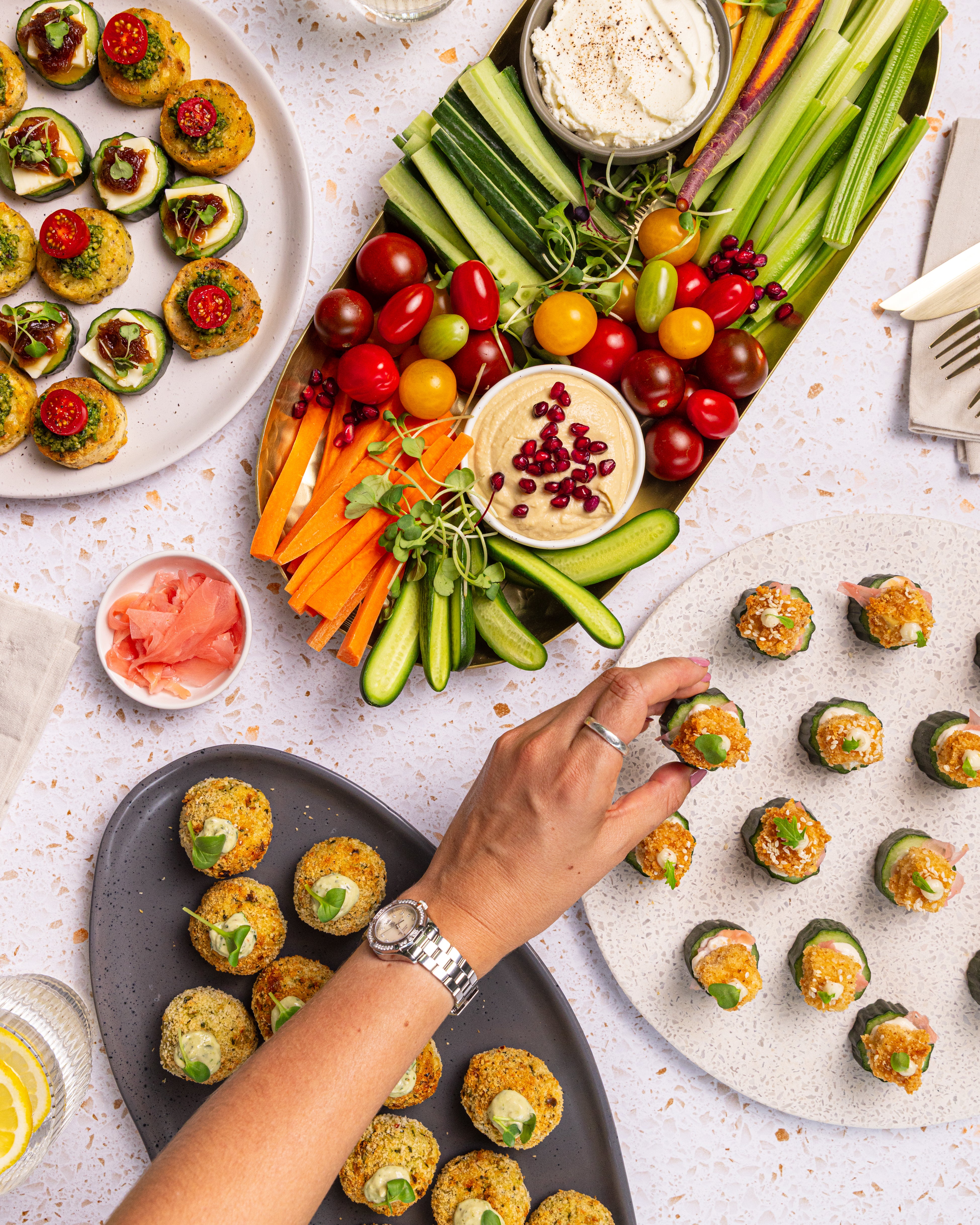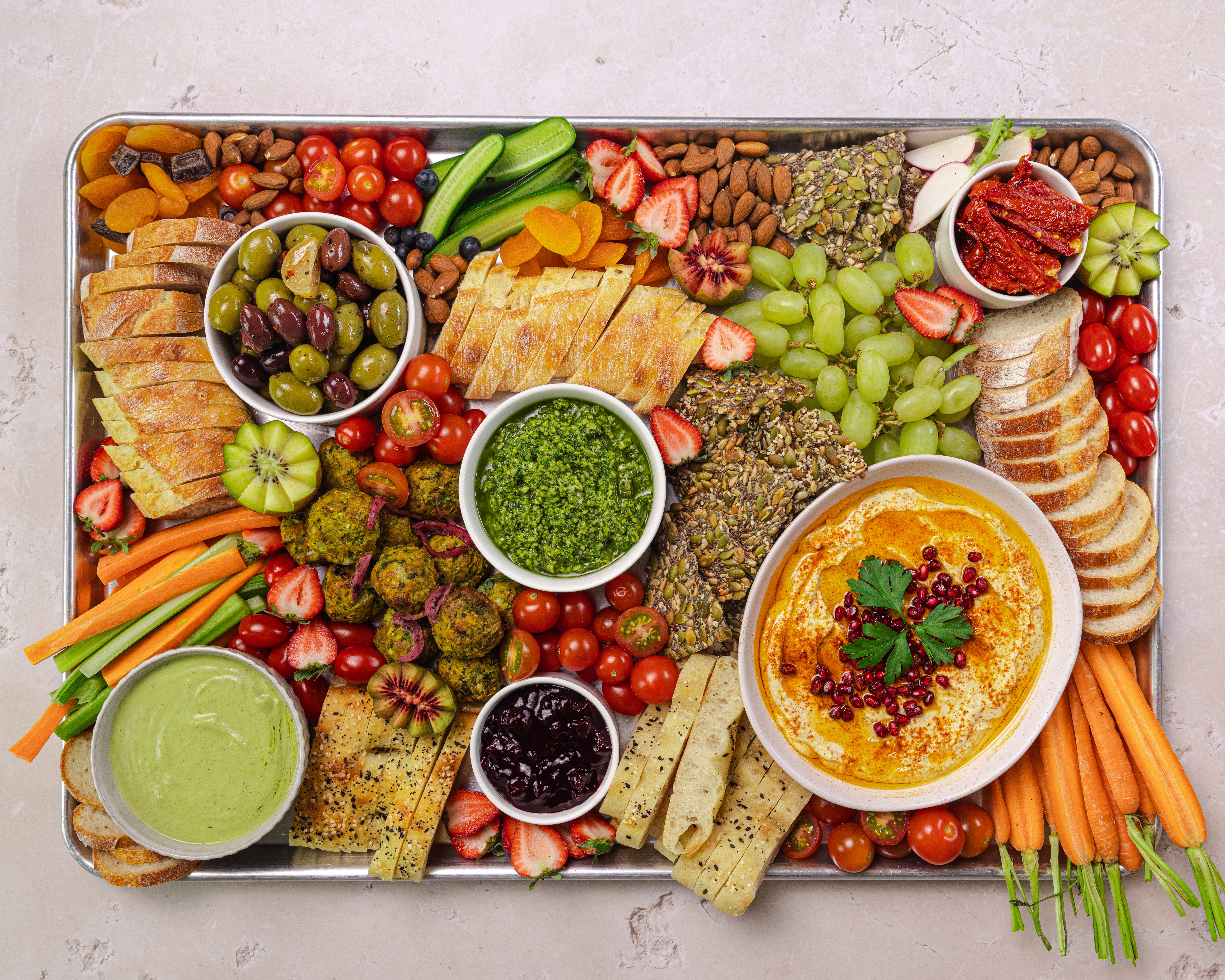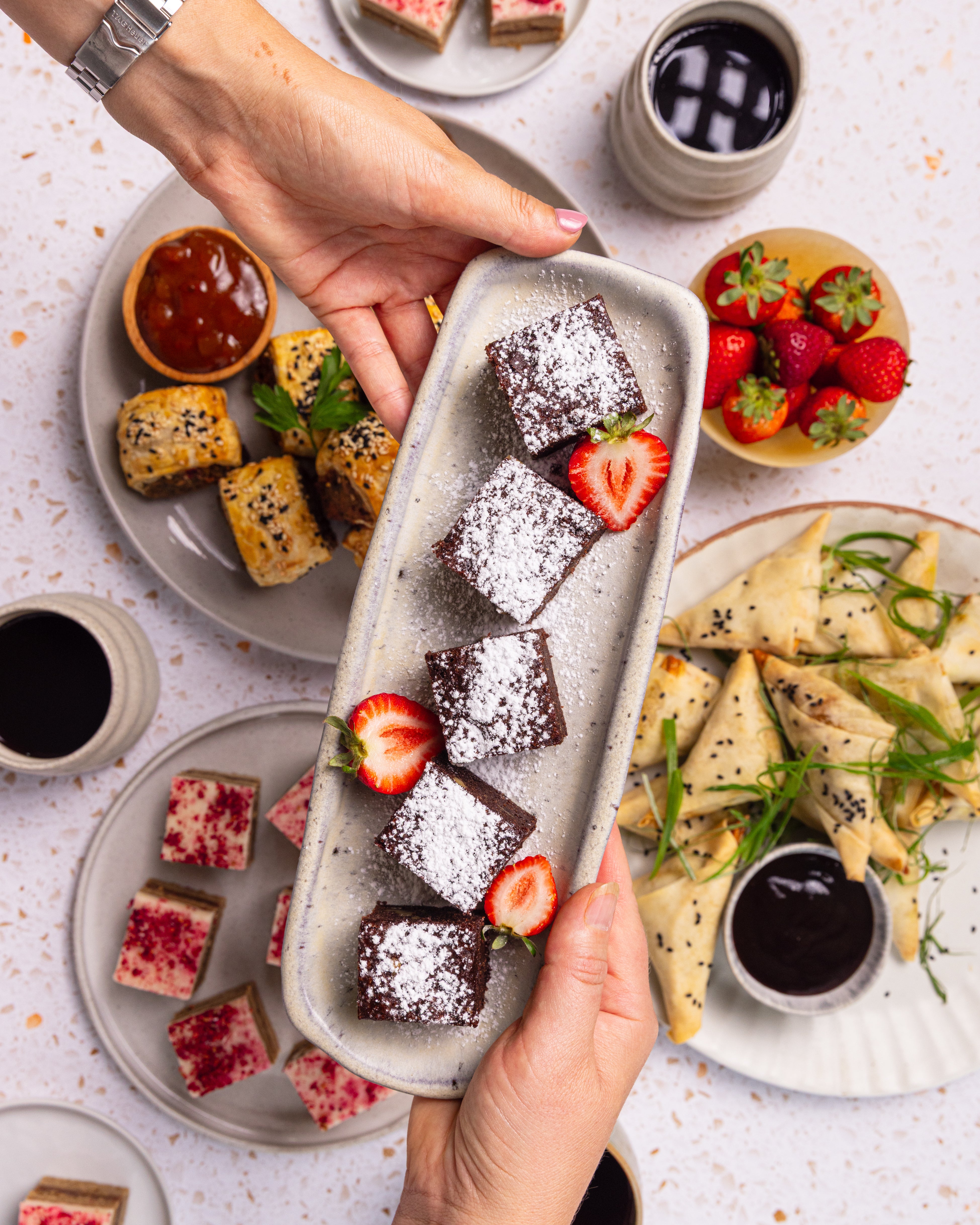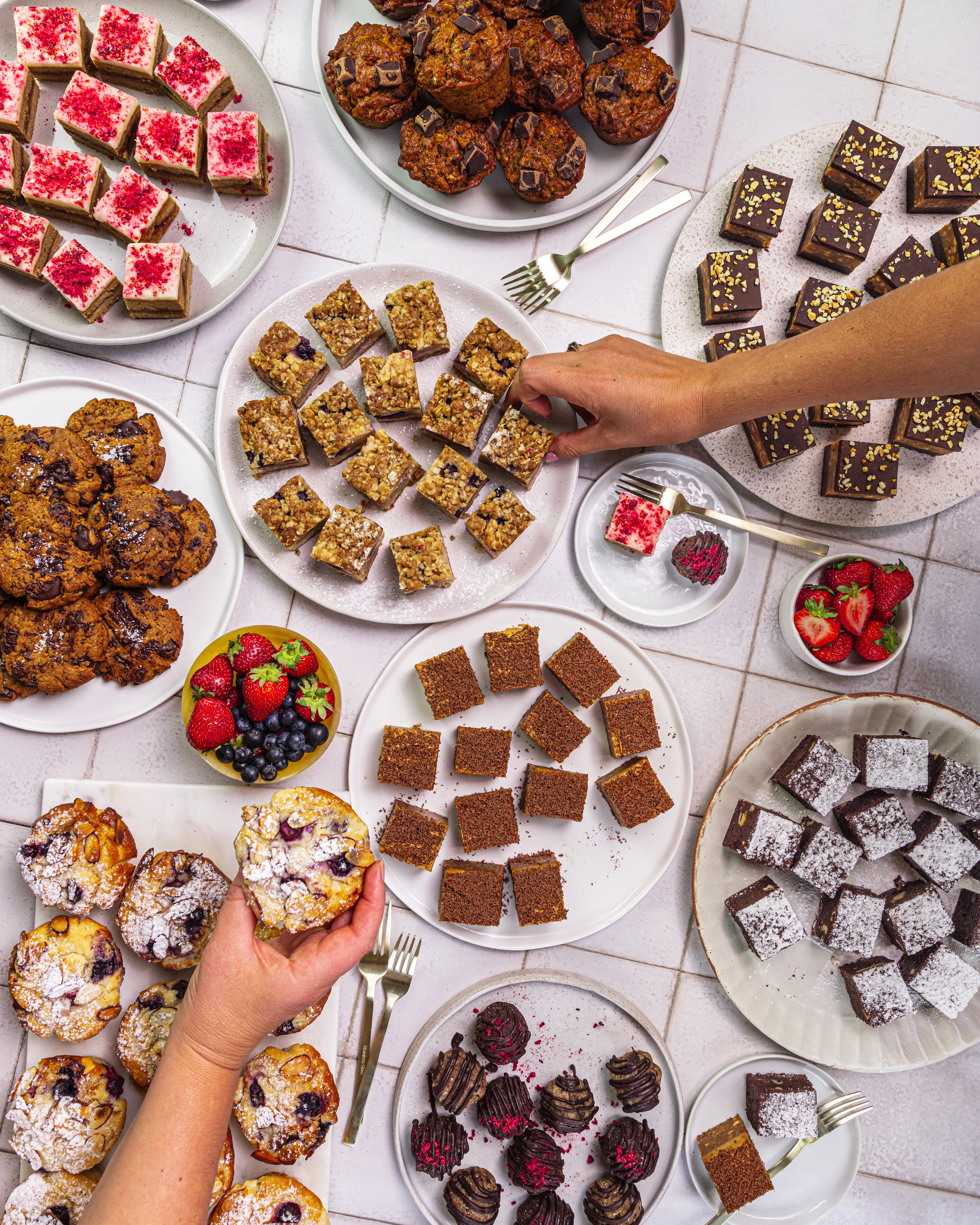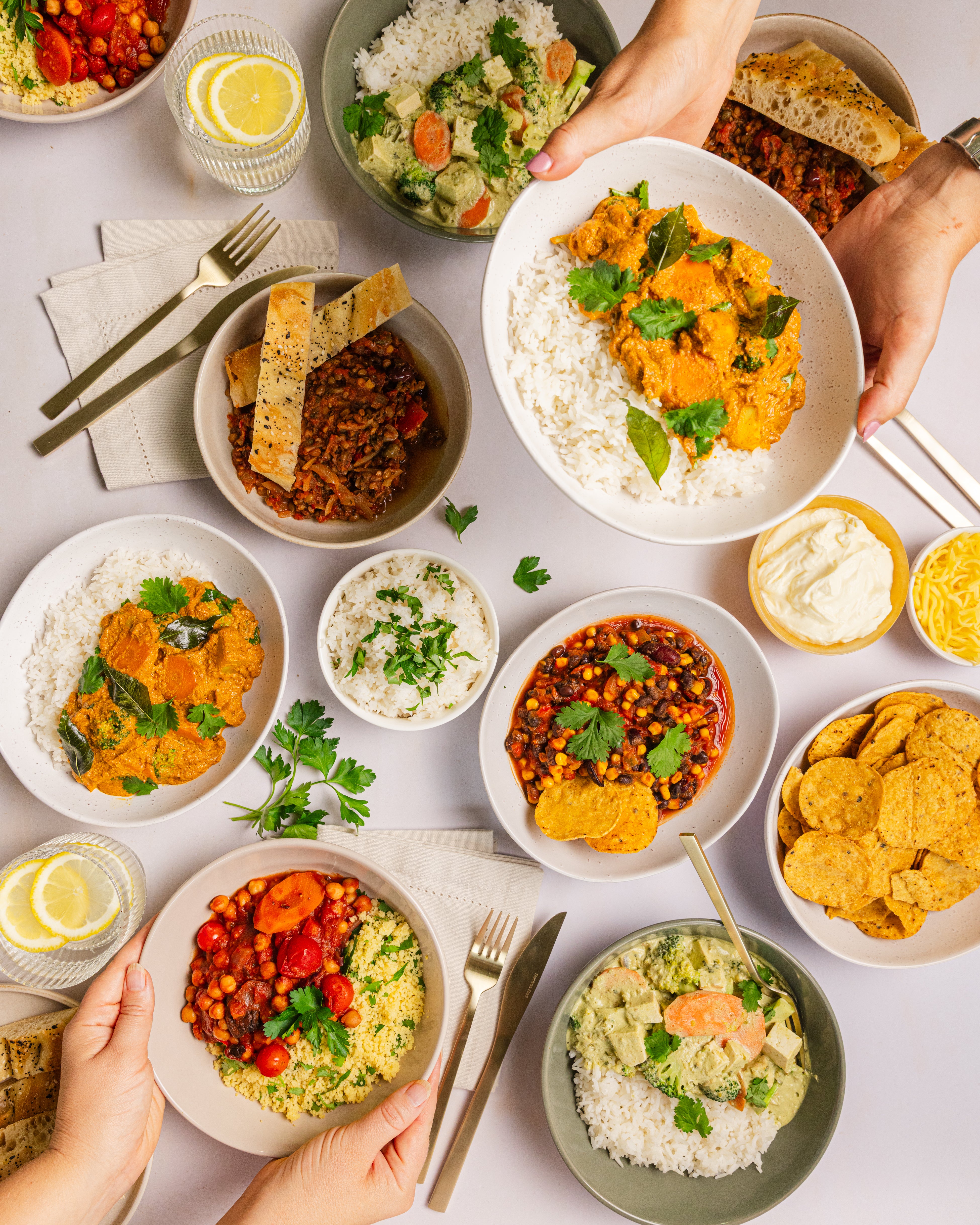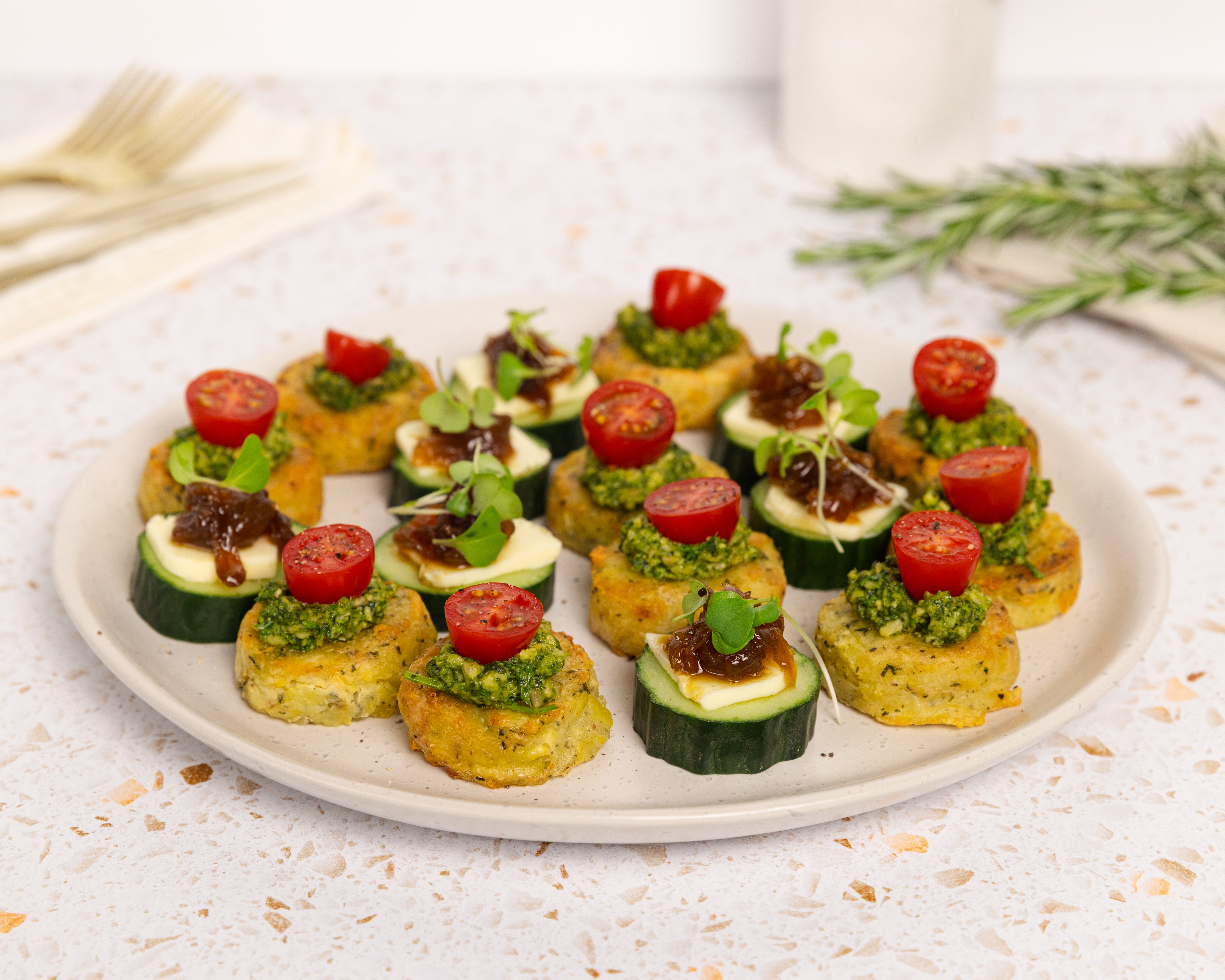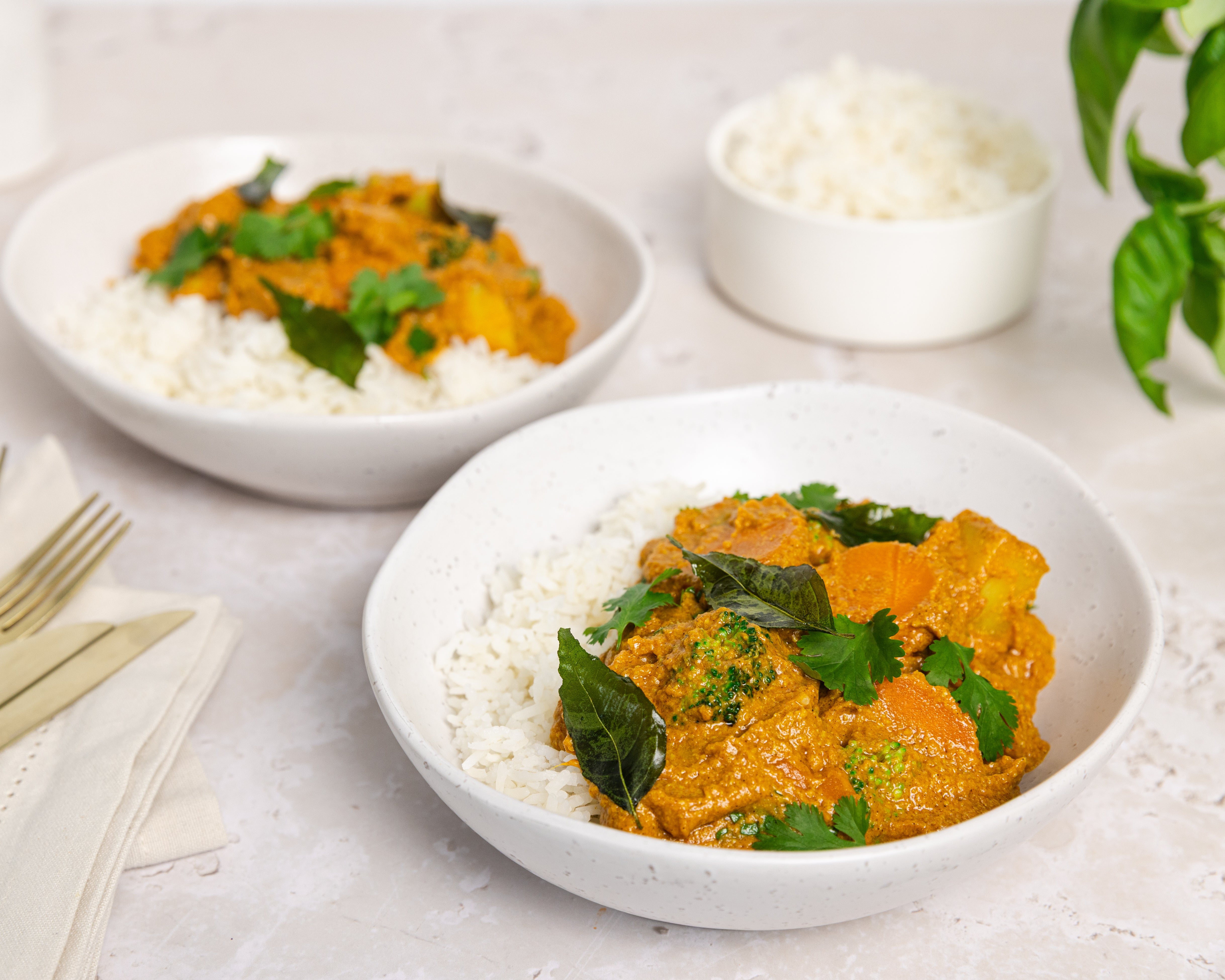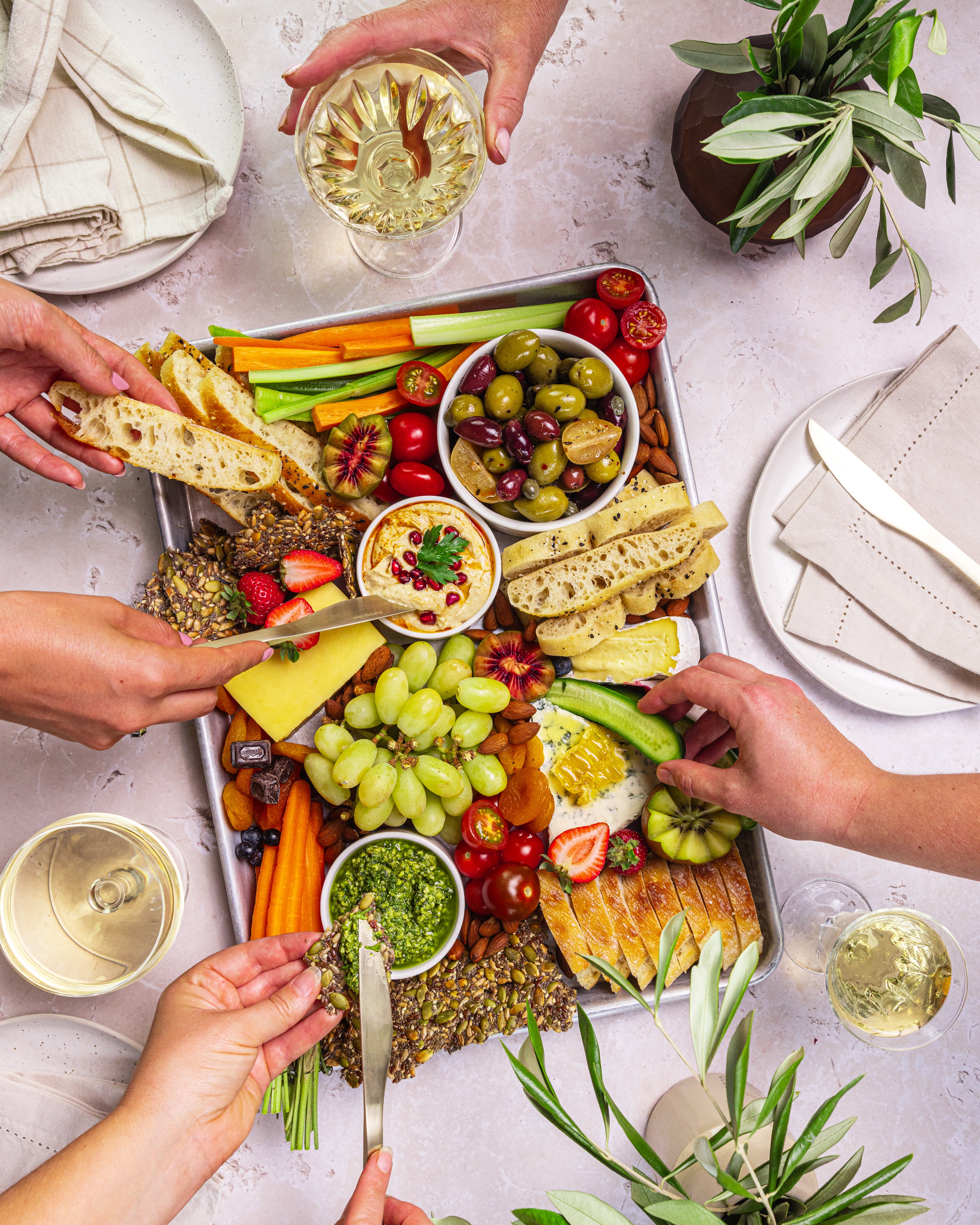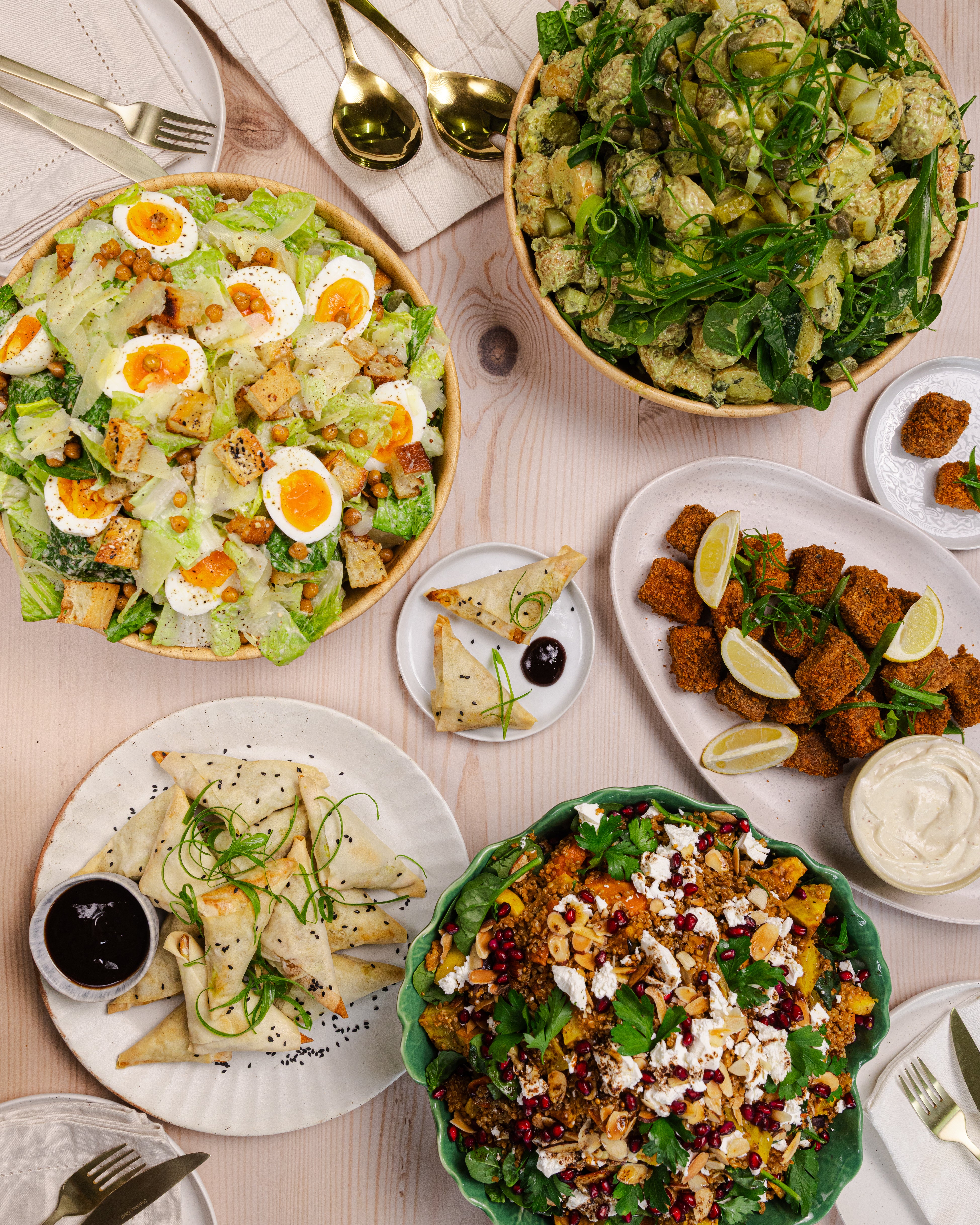Under fresh ownership since October '24—with a new look, new menu, and the same love for sustainable food.
Overline text
Sustainability
Mystery solved. Find out about our process and how we cater events and retreats with a plant-forward menu while keeping the environment top-of-mind from sourcing to serving.
-
1
Sourcing Ingredients
Whether dealing with farmers or bakers, we only buy fresh ingredients that support local growers and suit our seasonal menus. We aim to bring everything back to our kitchen with minimal waste, and make sure that what does come in packaging is either reused, recycled or composted through the right systems.
With the exception of some tropical fruit such as bananas and coconuts, all our fresh produce is NZ grown, so it doesn’t need to travel far to be eaten.
For our dry goods (herbs, spices, flours, etc.) we have good relationships with our suppliers that understand our ethos and work with us to minimise packaging. By doing this we pressure supply chains to deliver more sustainable alternatives.
Our menus are designed with waste reduction in mind, and if we can't source an ingredient without ensuring it's not creating landfill waste, then we substitute it for an ingredient where we can. We're big on recycling and composting and keep records of what we send into these streams in order that we can report on it and reduce this year-on-year.
If we really can't source a product waste-free—for example, when packaging contains a plastic-foil blend (think pesto and aioli)—we make it ourselves.
We love working with our friends in the industry to reduce waste and rescue good food. Take our partnership with Neat Cakes—this clever vegan bakery whips up magic with aquafaba (that’s the brine from chickpeas) but doesn’t need the chickpeas themselves. We, on the other hand, love chickpeas but not so much the brine. So, we swap! It’s a win-win—less waste, more deliciousness.
-
2
Food Preparation and Cooking
All our food is cooked and prepared following the low waste principle. We have a wicked stash of reusable containers and we make all of our sauces and toppings from scratch to reduce waste. Whenever we can, we buy NZ made kitchen equipment to support local and to minimise the environmental costs of long-distance transportation.
To reduce waste ever further, where possible we incorporate every part of fruits and vegetables into our recipes. When there’s an abundance of an in-season fruit or vegetable, we pickle it (for cheese boards), dehydrate it, ferment it, turn it into jam, or otherwise preserve it to make it last throughout the year.
Another big way we reduce waste is by making things ourselves. We make our own seeded crackers, basil pesto, aoili, caramelised onions and lots more to save on the unnecessary amount of packaging that surrounds store-bought ingredients.
-
3
Serving Food
Our plant-forward meals are presented, served and enjoyed at your event using nothing but reusable plates, bowls, cutlery, and glasses.
All orders are delivered on reusable platters with covered with freshly laundered reusable linen napkins (no glad-wrap), stainless steel serving-ware and high quality crockery.
-
4
Food Waste
We always work with our customers to ensure that they are ordering an appropriate amount of food for their event and will let them know if we think they are over-ordering, to ensure there isn't a whole heap of food that doesn't get eaten!
Because we know that food waste is a big concern, we provide all customers with a document outlining what responsible product stewardship means to us and give recomendations on what to do with leftover food. This includes donating it to food rescue organisations and city missions, sending take home packages with event guests and composting it where neccessary - pretty much anything except sending it to landfill.
When food waste ends up in landfills, it is forced to decompose anaerobically (without oxygen). As a result, it releases methane - a potent greenhouse gas that is also released in cow farts. When you compost food waste, in contrast, it breaks down aerobically (with oxygen), producing little in the way of greenhouse gasses.
It’s all about being circular.
After your event, at your request, we'll even provide you with a personalised impact report detailing carbon emissions saved and landfill rubbish diverted by working with us.

YOUR IMPACT REPORT
Every time you order with us, you'll have the option to request a certificate detailing your very own personalised environmental impact


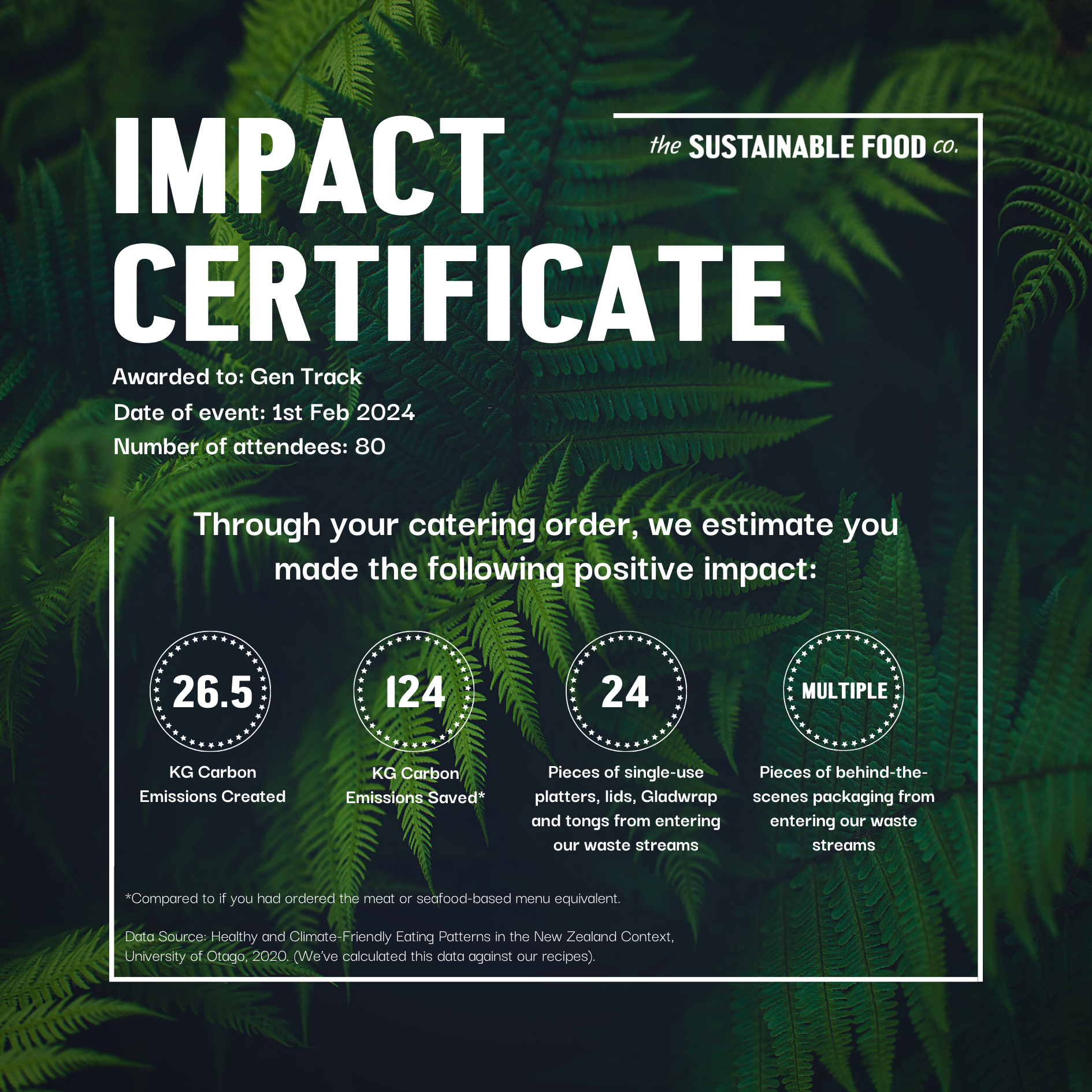
Our Impact
The impact of sustainable approach to catering accumulates throughout the year, saving a huge amount of single use plastic items from going to landfill!

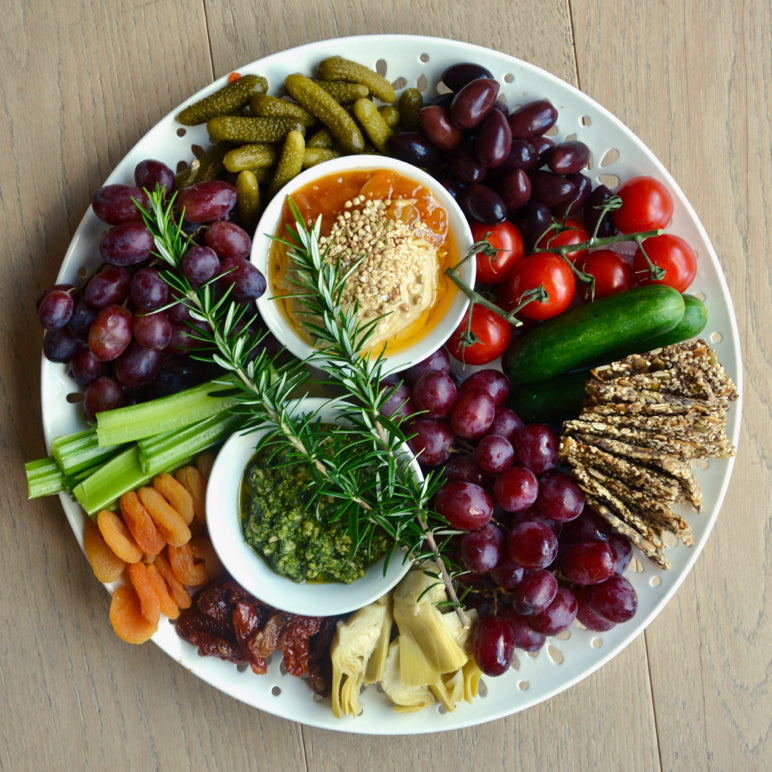
Average no of pieces saved from landfill each year
knives and forks
Plates and bowls
 11288
11288
behind the scenes food packaging
Single use serviettes
